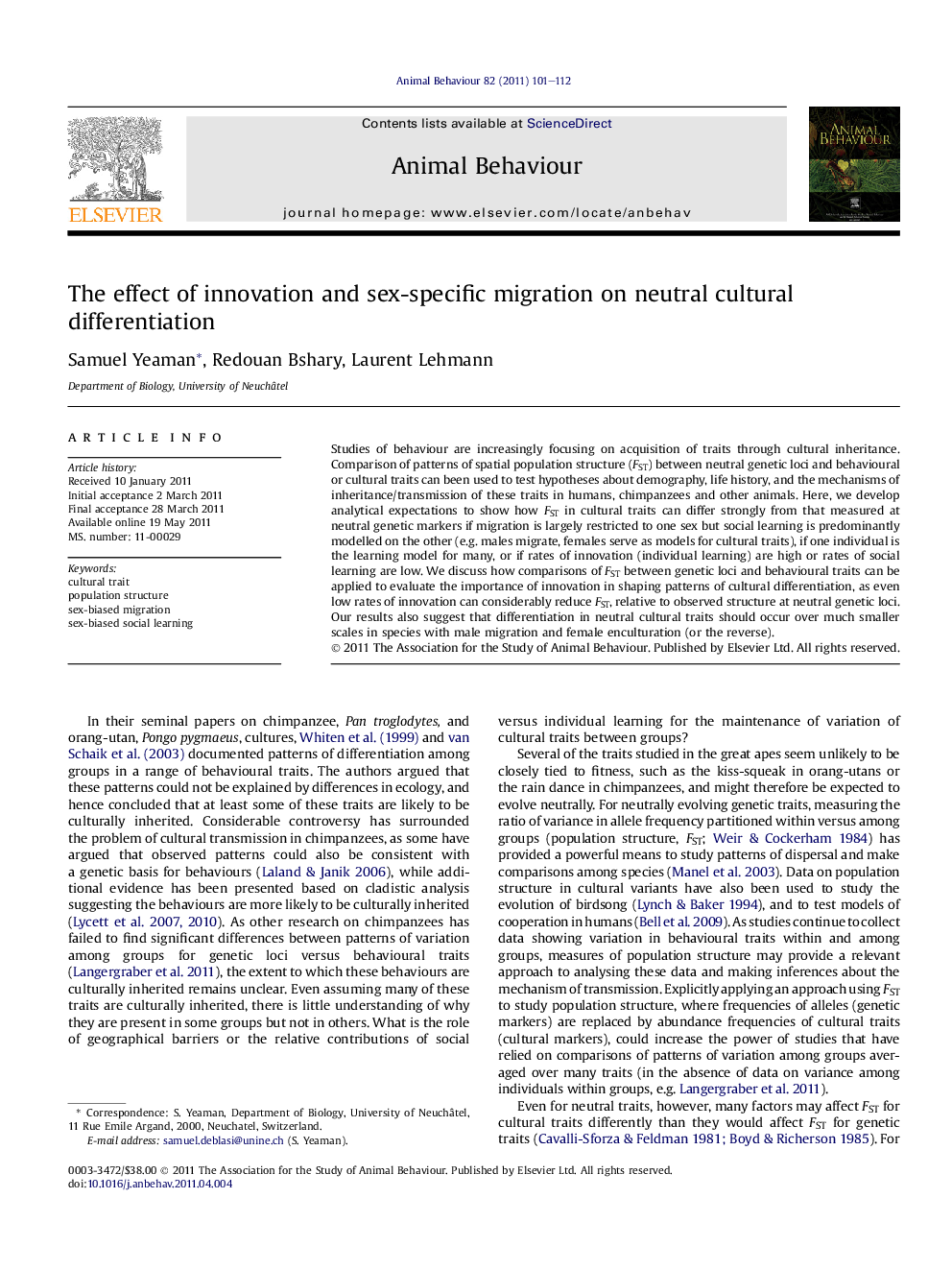| کد مقاله | کد نشریه | سال انتشار | مقاله انگلیسی | نسخه تمام متن |
|---|---|---|---|---|
| 2417031 | 1104305 | 2011 | 12 صفحه PDF | دانلود رایگان |

Studies of behaviour are increasingly focusing on acquisition of traits through cultural inheritance. Comparison of patterns of spatial population structure (FST) between neutral genetic loci and behavioural or cultural traits can been used to test hypotheses about demography, life history, and the mechanisms of inheritance/transmission of these traits in humans, chimpanzees and other animals. Here, we develop analytical expectations to show how FST in cultural traits can differ strongly from that measured at neutral genetic markers if migration is largely restricted to one sex but social learning is predominantly modelled on the other (e.g. males migrate, females serve as models for cultural traits), if one individual is the learning model for many, or if rates of innovation (individual learning) are high or rates of social learning are low. We discuss how comparisons of FST between genetic loci and behavioural traits can be applied to evaluate the importance of innovation in shaping patterns of cultural differentiation, as even low rates of innovation can considerably reduce FST, relative to observed structure at neutral genetic loci. Our results also suggest that differentiation in neutral cultural traits should occur over much smaller scales in species with male migration and female enculturation (or the reverse).
Journal: Animal Behaviour - Volume 82, Issue 1, July 2011, Pages 101–112